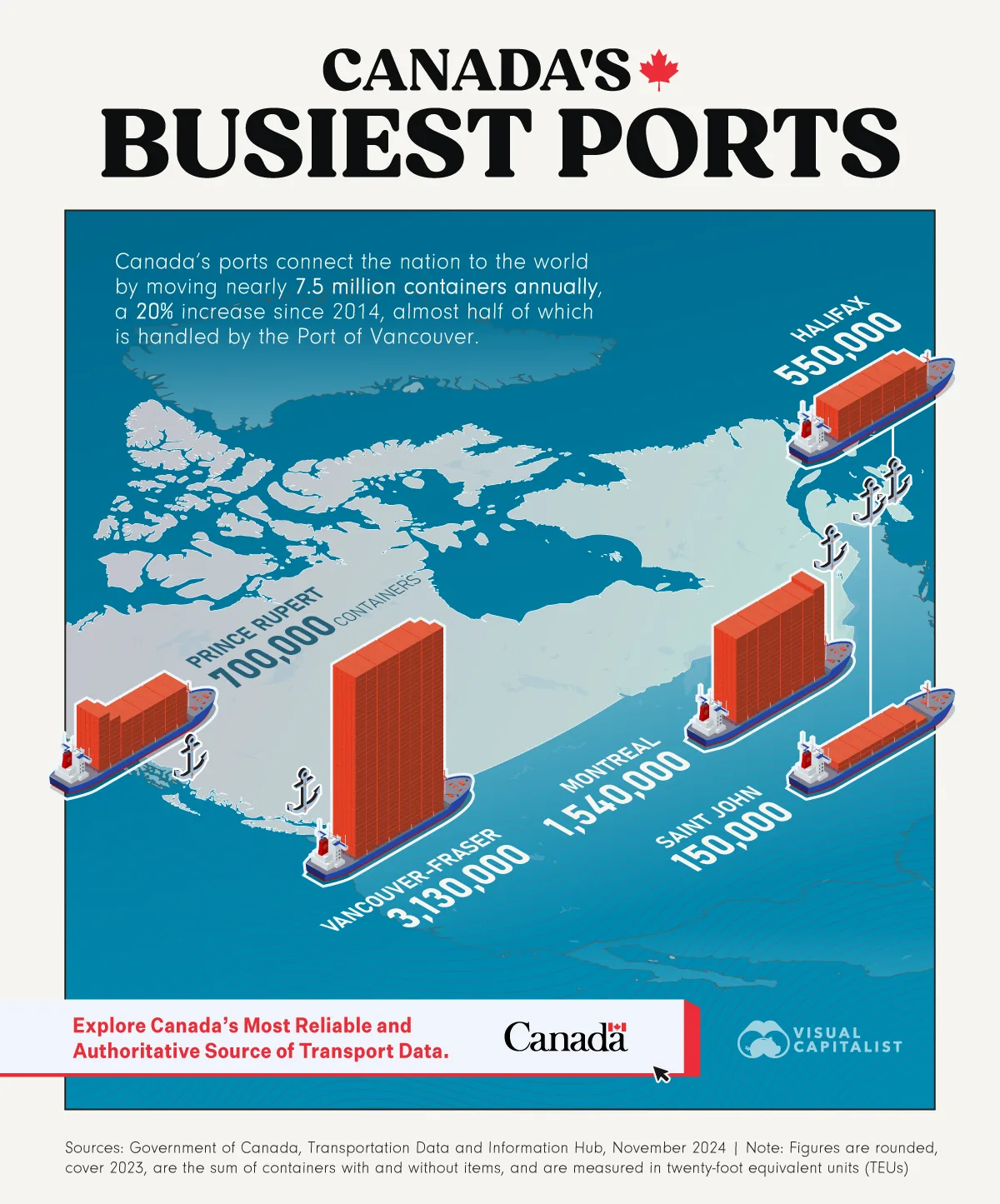Mapped: Canada’s Busiest Ports
October 7, 2025
By Alan Kennedy
Article & EditingGraphics & Design
The following content is sponsored by Transport Canada

Mapped: Canada’s Busiest Ports
Key Takeaways- Canada’s busiest ports process ~7.5M containers annually; the top five handled ~6.1M in 2023.
- Vancouver-Fraser moved ~3.1M (42% of the nation’s total), with Montreal at 1.5M (20%).
Canada’s marine gateways are the front door to the world’s goods economy. But its container traffic is concentrated in a select number of ports.
So, which Canadian ports handle the most containers?
This graphic, in partnership with Transport Canada, shows Canada’s busiest ports by 2023 container throughput and share of national volume using data from the Government of Canada.
Canada’s Port Network at a Glance
Canada’s ports process nearly 7.5 million containers annually, representing a roughly 20% increase since 2014. Almost half moves through Vancouver-Fraser, underscoring the West Coast’s trans-Pacific role.
Here is a table showing 2023 containers, including items and empties, by port, along with a total for each gateway.
PortContainers Handled in 2023|
| Vancouver-Fraser | 3,130,000 | | Montreal | 1,540,000 | | Prince Rupert | 700,000 | | Halifax | 550,000 | | Saint John | 150,000 |
The 2023 throughput from the top five ports totaled approximately 6.1 million containers. Vancouver-Fraser handled roughly 3.1 million, or about 52% of that total.
Other hubs, including Prince Rupert, Montreal, and Halifax, anchor regional supply chains. Together, they connect Canadian producers and consumers to Asia, Europe, and the U.S. heartland.
Why Ports Matter
Port performance influences shipping costs, delivery times, and resilience. When trade reroutes or demand spikes, spare capacity and intermodal links ensure cargo ships and their goods continue to move.
Are you interested in learning more about Canada’s transportation and trade data?
Drawing directly from the most authoritative sources, including the Government of Canada and Statistics Canada, the Transport Data and Information Hub (TDIH) provides information on Canada’s roads, rail networks, air traffic, port activity, trade, and more. |








